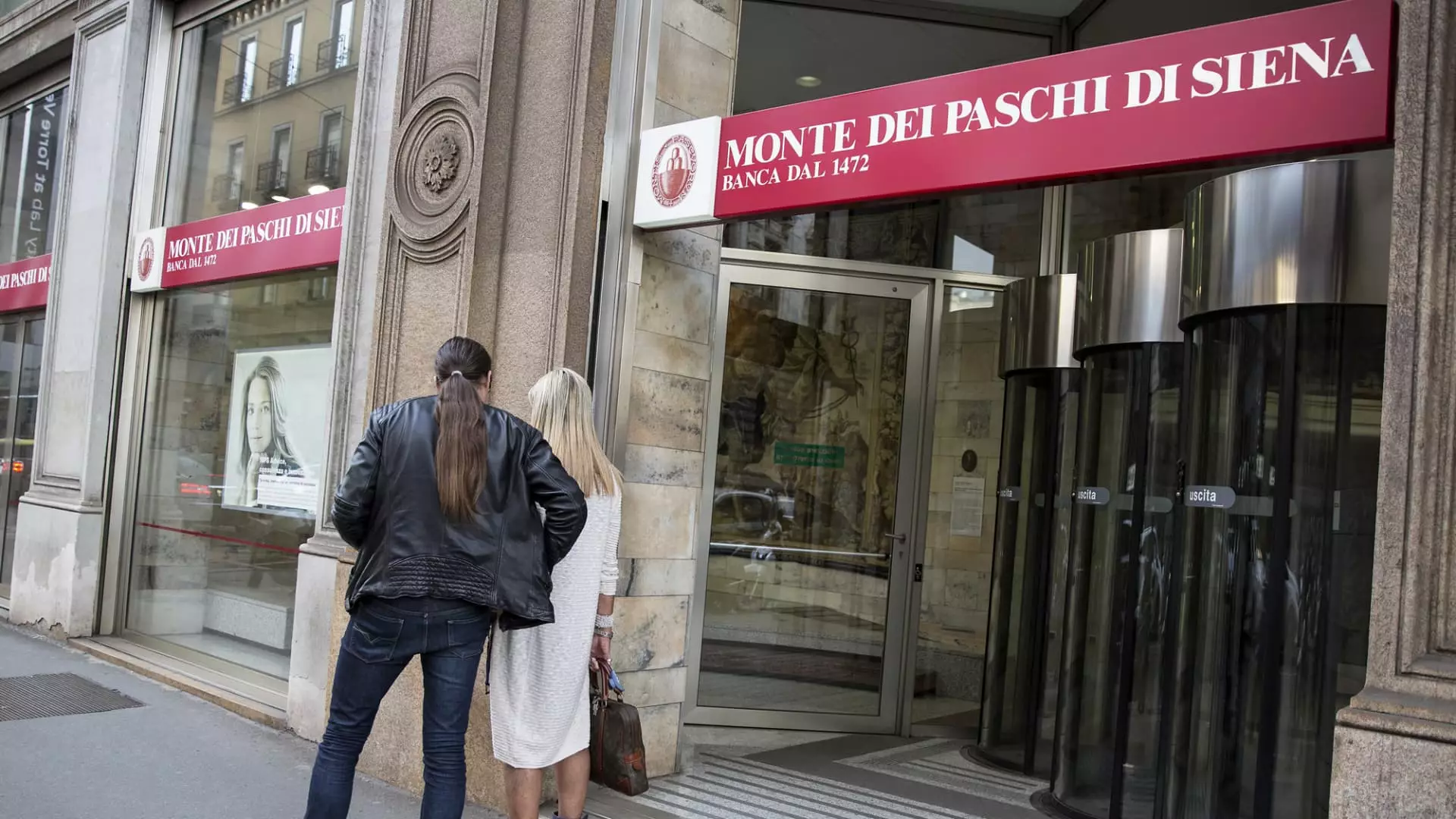Italy’s banking landscape is undergoing a tumultuous period, epitomized by the audacious plans of Monte dei Paschi di Siena (MPS). With its eye firmly set on acquiring Mediobanca for €13 billion, the world’s oldest bank is demonstrating an ambitious endeavor amidst existing market volatility. While grandiose intentions often accompany substantial risks, MPS’s determination raises eyebrows, particularly against the backdrop of an old institution trying to redefine its relevance.
In January, the all-share proposal for Mediobanca was received with skepticism as Mediobanca’s leadership criticized the move as “destructive.” MPS, once under the protective umbrella of Italian government bailouts, now finds itself insisting on its independence and capability for self-determination, proclaiming confidently through CEO Luigi Lovaglio that the bank is “back” and “in control.” These declarations, however, translate poorly to investors who still remember the financial blues of 2017, raising essential questions about whether they’re genuinely in control or simply stubborn in their pursuit of an acquisition that may ultimately lead to misfortune.
The Illusion of Size
Lovaglio’s assertion that market conditions validate the need for size and revenue diversification is a classic example of how ambitions can cloud judgment. In the banking sector, size does matter—yet only if it correlates with strategic synergy. The underlying tension here is that despite the proclaimed benefits of merging resources and capabilities, the economic realities continue to challenge this construct. Analysts are divided on the real potential of combining MPS with Mediobanca, with the risk of overextending itself becoming a central concern.
Barclays’ bearish stance on MPS, signaling that pursuing Mediobanca could entrench the bank deeper into financial instability, creates a stark counterpoint to Lovaglio’s optimism. Should the quest for acquisition result in financial strain, the supposed advantages of consolidation may turn into liabilities, burying MPS deeper in uncertainty. The harsh lesson here is that ambition, untempered by a firm grasp of financial realities, can morph quickly from a promising trajectory into a perilous freefall.
The Market’s Watchful Eyes
Recent trends in the global equity markets can serve as harbingers of caution for MPS. The immediate drops in share prices following the acquisition announcement illustrate how market sentiment can swiftly turn against a company’s bold moves. The reality that Mediobanca’s shares have plummeted approximately 14% since the acquisition ploy became public knowledge hints at deep-seated skepticism within the market about the feasibility of this merger.
Furthermore, this skepticism is echoed in ongoing caution from various financial entities, with significant players like the 3i Group postponing sales while fintech firms like Klarna stall IPO plans. These broader indicators of trepidation towards market maneuvers should provide MPS with a reality check. The urgency to assert control must be weighed against the potential repercussions of recklessly pursuing deals that may not yield harmonious outcomes.
A Historic Crossroad or Reckless Ambition?
MPS’s combative posture in asserting its foothold in the banking sector presents itself as a double-edged sword. While there’s palpable promise in ambitious consolidation talks, especially amidst ongoing shifts within the Italian banking framework—evident through UniCredit’s bid for Banco BPM—the fervor for growth must be matched with diligent financial stewardship. The notion that MPS will emerge as a “protagonist” in the banking story remains entangled with the potential for costly miscalculations.
In some regard, Lovaglio’s perspective that this may just be the first phase of consolidation may indicate a longer-term strategic vision. Still, a critical examination suggests that without sound financial footing, such visions risk collapsing under their weight. The impetus for consolidation, aimed at navigating through this “first wave,” should not detract from the sheer necessity of ensuring current stability and growth for MPS itself.
In this high-stakes game of financial chess, the outcome will hinge not only on ambition but also on a nuanced understanding of risk, market dynamics, and the unyielding need for financial prudence. One must wonder if MPS’s journey is about destiny or merely chasing shadows.

Leave a Reply